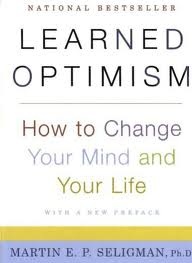By Martin Seligman. 2002.
People who give up easily believe the causes of the bad events that happen to them are permanent: The bad events will persist, will always be there to affect their lives. People who resist helplessness believe the causes of bad events are temporary.
Optimistic people explain good events to themselves in terms of permanent causes: traits, abilities, always’s. Pessimists name transient causes: moods, effort, sometimes’s.
The optimistic style of explaining good events is the opposite of that used for bad events: it’s internal rather than external. People who believe they cause good things tend to like themselves better than people who believe good things come from other people or circumstances.
A pessimistic explanatory style is at the core of depressed thinking. A negative concept of the future, the self, and the world stems from seeing the causes of bad events as permanent, pervasive, and personal, and seeing the causes of good events in the opposite way.
Depressed people often cannot get started on any but the most routine tasks, and they give up easily when impeded.
Explanatory style the great modulator of learned helplessness. As we saw earlier, optimists resist helplessness. They do not become depressed easily when they fail. They do not give up easily. Across a lifetime, an optimistic person will have fewer episodes of learned helplessness than a pessimistic person will.
The most convincing way of disputing a negative belief is to show that it is factually incorrect. Much of the time you will have facts on your side, since pessimistic reactions to adversity are so often overreactions.
Almost nothing that happens to you has just one cause; most events have many causes.
To dispute your own beliefs, scan for all possible contributing causes. Focus on the changeable, the specific, and the nonpersonal causes. You may have to push hard at generating alternative beliefs, latching onto possibilities you are not fully convinced are true. Remember that much of pessimistic thinking consists on just the reverse, latching onto the most dire possible belief, not because the evidence supports it, but precisely because it is so dire. Your job is to undo this destructive belief by becoming skilled at generating alternatives.

